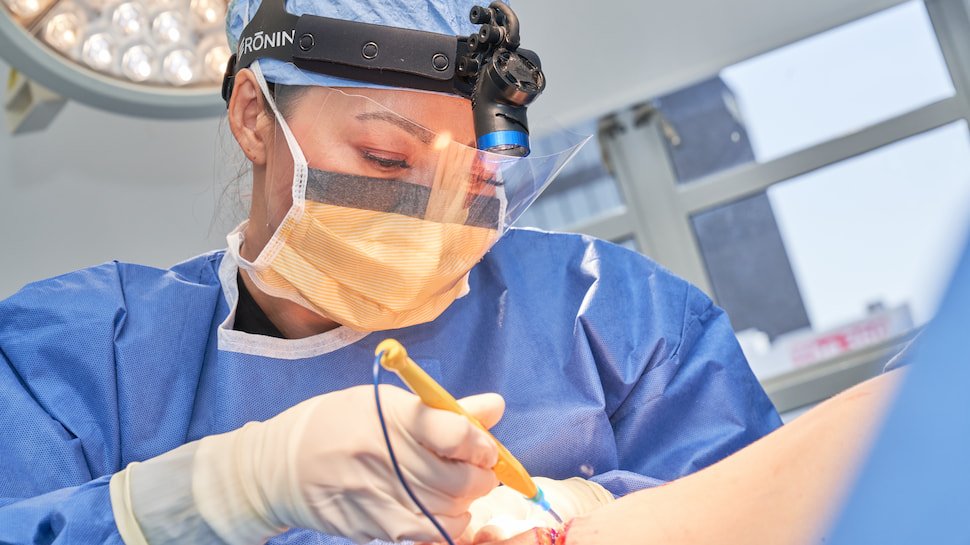Bariatric surgery is a powerful tool for weight loss, but it is not a cure-all. The real success of the procedure depends on the patient’s ability to make lifestyle changes that support long-term health. Among those changes, nutrition plays one of the most critical roles. What you eat after surgery directly impacts weight management, healing, and overall well-being.
This article explores why nutrition matters, the dietary adjustments patients must make, and how working with bariatric professionals in Georgia can ensure lifelong results.
Why Nutrition Is Crucial After Bariatric Surgery
Bariatric surgery works by reducing stomach size and, in some cases, altering how food is absorbed. This means patients need fewer calories, but it also increases the risk of nutritional deficiencies. Without the right diet, patients may experience fatigue, weakness, or slower recovery.
Proper nutrition supports:
- Weight maintenance – Prevents regaining pounds after the initial loss.
- Metabolic balance – Ensures blood sugar levels remain steady, which is vital for those with Type 2 diabetes.
- Healing and recovery – Provides the body with essential nutrients to heal after surgery.
- Overall wellness – Reduces the risk of long-term complications like anemia, osteoporosis, and vitamin deficiencies.
This is why patients working with bariatric surgery specialists in Atlanta receive detailed nutrition plans as part of their long-term care.
Key Nutritional Guidelines After Surgery
Every patient’s journey is different, but some nutritional principles are universal for bariatric success:
- Protein First – Prioritizing lean protein sources like chicken, fish, eggs, and beans helps preserve muscle mass while losing fat.
- Smaller, Frequent Meals – Since the stomach holds less food, eating 4–6 small meals keeps energy levels steady.
- Hydration Matters – Drinking enough water while avoiding sugary drinks supports digestion and weight management.
- Vitamin and Mineral Supplements – Lifelong supplementation of vitamins B12, D, iron, and calcium is often required.
- Avoid Empty Calories – Sugary snacks, fried foods, and alcohol can quickly derail progress.
Following these rules helps ensure that weight loss is sustainable and that the body stays nourished. Patients who work with a bariatric surgeon in Roswell often receive personalized dietary counseling to help them stick to these guidelines.
How Nutrition Supports Long-Term Weight Loss
The first year after surgery usually brings rapid weight loss, but maintaining those results depends on diet. Patients who return to old eating habits may experience weight regain, while those who follow their nutrition plan are more likely to keep the pounds off permanently.
Balanced nutrition also supports hormone regulation. By eating smaller portions of whole foods, patients avoid spikes in hunger hormones that often trigger overeating. Over time, these habits create a healthier relationship with food.
Common Nutritional Challenges
While nutrition is critical, it doesn’t come without challenges. Some patients struggle with:
- Food intolerances – Certain foods may be harder to digest after surgery.
- Emotional eating – Stress or boredom may tempt patients back to old habits.
- Vitamin deficiencies – Skipping supplements can cause serious health issues.
- Meal planning – Adjusting to smaller meals requires discipline and preparation.
Support groups and professional guidance are essential for overcoming these obstacles. Patients in suburban areas can rely on a bariatric surgeon in Snellville for accessible follow-up care and nutritional support close to home.
Nutrition and Lifestyle: A Long-Term Partnership
It’s important to view bariatric surgery as the beginning of a journey, not the end. Long-term success is built on daily nutrition choices combined with active living. Patients who pair healthy eating with regular exercise enjoy better weight maintenance, stronger bodies, and more confidence in their results.
Nutrition also plays a key role in mental health. A diet rich in whole foods supports better mood, higher energy, and reduced stress, making it easier for patients to stay motivated.
Final Thoughts
Bariatric surgery may start the process of weight loss, but nutrition ensures the results last. By focusing on protein, hydration, vitamins, and balanced meals, patients can avoid complications and build sustainable health habits. Proper nutrition doesn’t just protect against deficiencies—it strengthens the body, supports emotional well-being, and gives patients the tools to maintain their transformation for life.
For those seeking guidance, bariatric surgery in Atlanta provides access to advanced procedures and ongoing dietary support. Patients in Roswell benefit from individualized nutrition counseling with local specialists, while those in Snellville can count on nearby experts to guide them every step of the way.
Ultimately, the role of nutrition after bariatric surgery cannot be overstated. It is the foundation that transforms surgical success into lifelong success, helping patients reclaim their health and enjoy a brighter, healthier future.
Related Reads
- Flow Wrapping Machine – Revolutionizing Modern Packaging
- Best Online Attendance Percentage Calculator for Students to Track Days Present and Days Absent Easily
- Custom Bath Bomb Boxes for Your Packaging Needs
- Office Carpet Cleaning Services Make a Big Difference
- Endpoint Management Solutions Enabling Smarter BYOD Policies Without Security Risks



